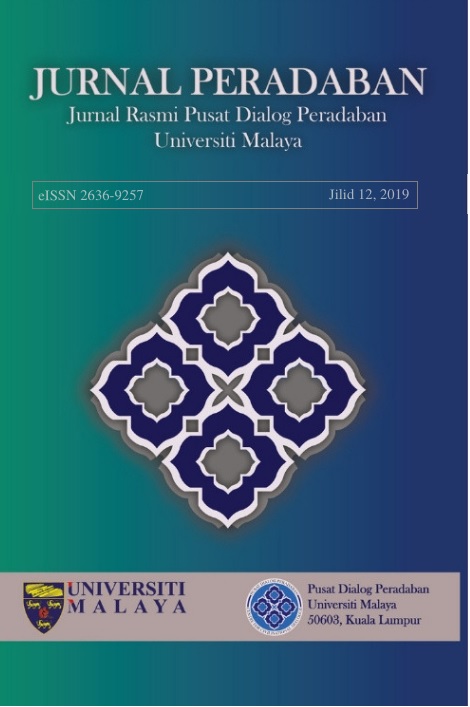Pemikiran Kebahagiaan Dalam Tamadun Yunani Klasik 470 S.M-529 M.: Satu Analisis Ringkas
DOI:
https://doi.org/10.22452/PERADABAN.vol12no1.1Abstract
Happiness is one of the main topic that disscuss in philosophy of ethics dominantly. The concept of happiness disscussed from the beginning of philosophy disscussion at the age of classical Greeks around 470 BC until the end of five centuries after the birth of Christianity around 529 AD. The question of happiness arises when philosophers try to find answers to the ultimate and highest goal of human life. Because of that, various concepts and meanings about happiness are introduced to find solution to these issues. Therefore, this article written to describe the concept of happiness in the ancient Greeks by dividing it into specific periods starting from pre-Socrates, Sophist, Socrates, Plato, Aristotle and another school of thought later that disscussed happiness such as Epicureanism and Stoicism.
Kebahagiaan merupakan salah satu topik utama yang mendominasi wacana falsafah etika. Konsep kebahagiaan mula dibincangkan sejak munculnya falsafah pada zaman Yunani klasik, bermula sejak falsafah dibincangkan dalam tamadun Yunani klasik kira-kira tahun 529 M. Persoalan kebahagiaan timbul apabila para ahli falsafah cuba mencari jawapan mengenai matlamat akhir dan tertinggi bagi kehidupan manusia. Berbagai-bagai konsep dan makna mengenai kebahagiaan diketengahkan bagi mencari penyelesaian terhadap persoalan tersebut. Konsep kebahagiaan diperihalkan dan dianalisis dengan membahagikan kepada zaman Pra-Socrates, Sofis, Socrates, Plato, Aristoteles dan juga pada zaman Yunani klasik kemudian khasnya Epicurusan dan Stois. Setiap konsep kebahagiaan ditunjukkan kelemahannya.



 Copyright Transfer Agreement
Copyright Transfer Agreement

